POLYGON ON A COORDINATE PLANE
Subscribe to our ▶️ YouTube channel 🔴 for the latest videos, updates, and tips.
One advantage of the Cartesian coordinate plane is that it enables mathematicians to use coordinates to analyze geometric figures.
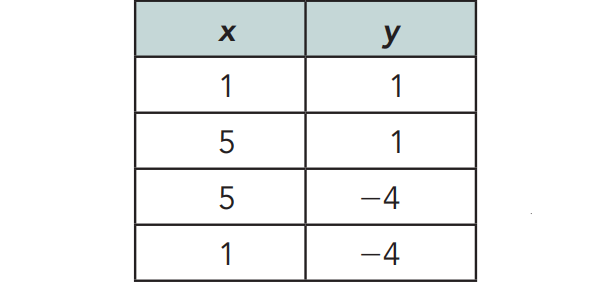
The points in the table above have been graphed on the coordinate plane and connected to form a polygon.
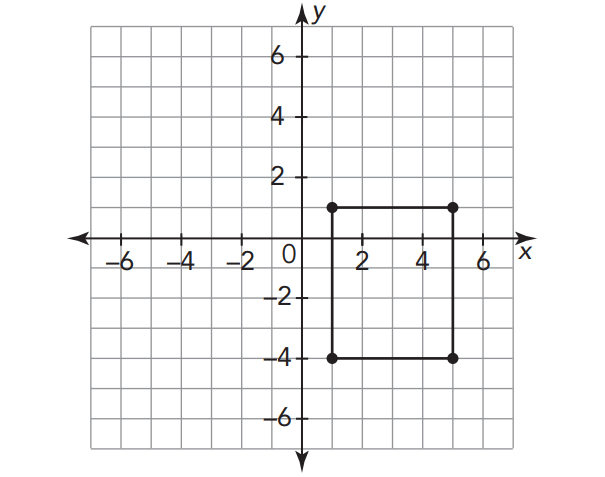
The polygon has opposite sides that are parallel and congruent, so it is a parallelogram. It also has four right angles, so it is a rectangle. The perimeter and area of the rectangle can be calculated by first determining its length and width. The length of the rectangle is 5 units and the width of the rectangle is 4 units.
Perimeter :
4 + 5 + 4 + 5 = 18 units
Area :
5 x 4 = 20 square units
There is often more than one way to complete a polygon on the coordinate plane when given a segment.
For example, on the coordinate plane, the line segment
AB is graphed.
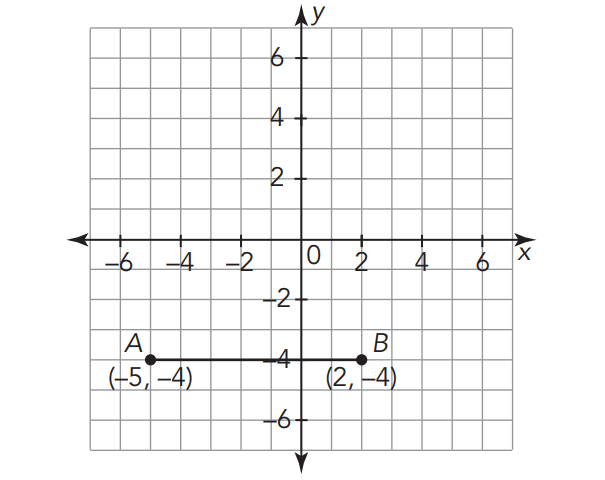
Plot and label points C and D to form a parallelogram with a height of 6 units.
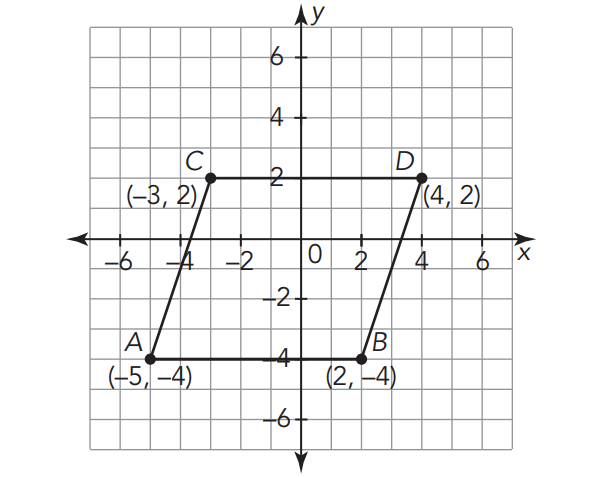
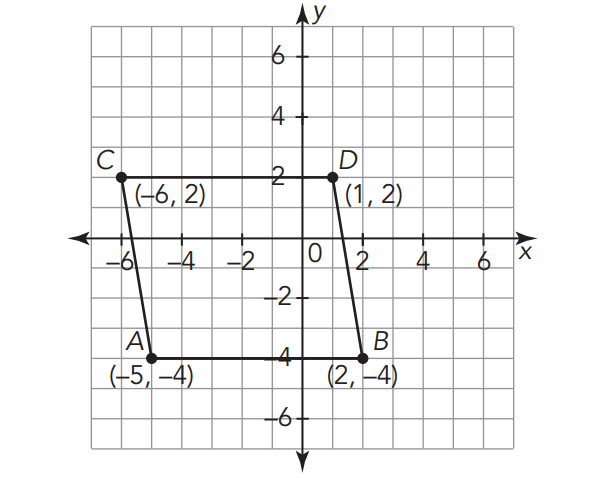
Two different examples of Parallelogram ABCD are shown. Each has a length of 7 units and height of 6 units, so they both have an area of
7 x 6 = 42 square units
The distance between two points on a coordinate plane can be calculated by using the coordinates of the two points.
For example, the design of a playground is laid out in a grid with a unit of 1 foot. The coordinates of the sand pit that will go under the swing set are located at
(-15, 7), (-10, 7), (-15, 21), and (-10, 21)
Determine the volume of the sand pit if the pit is 0.5 foot deep.
Plotting the coordinates of the sand pit on a coordinate plane shows that the shape of the sand pit is a rectangle. Use the coordinates to determine the distance between the points which will give you the length and width of the rectangle.
Width :
|- 15| - |-10| = 15 - 10 = 5 feet
Length :
|7| + |-1| = 7 + 1 = 8 feet
Area :
8 x 5 = 40 square feet
Volume :
8 x 5 x 0.5 = 20 cubic feet
Find the area of composite figure :
Problem 1 :
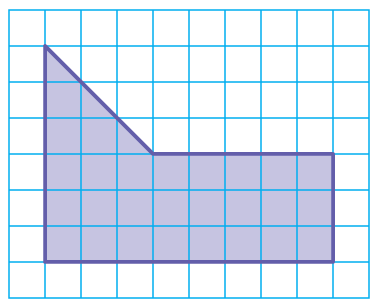
Solution :
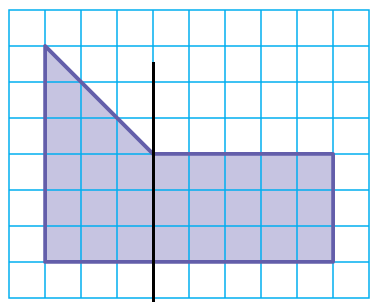
Area of the shape = Area of trapezium + area of rectangle
Area of trapezium = 1/2 x h x (a + b)
Area of rectangle = length x width
height = 3, a = 6 and b = 3
length = 5, width = 3
= (1/2) x 3 x (6 + 3) + 5 x 3
= 1.5 x 9 + 15
= 13.5 + 15
= 28.5 square units
Area of the shape given = 28.5 square units
Problem 2 :
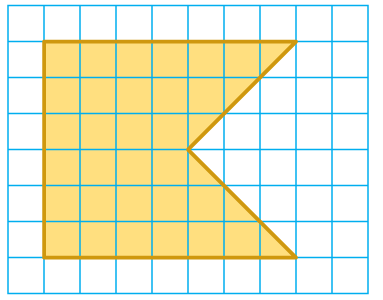
Solution :
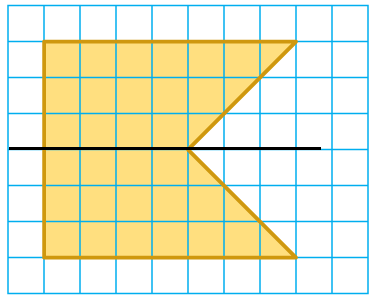
Area of the shape = 2 x area of trapezium
Let a and b be parallel sides and h be the height
a = 7, b = 4, h = 3
Area of trapezium = (1/2) x h (a + b)
Area of shape = 2 x (1/2) x 3 x (7 + 4)
= 3 x 11
= 33 square feet
Area of the shape given = 33 square feet
Problem 3 :
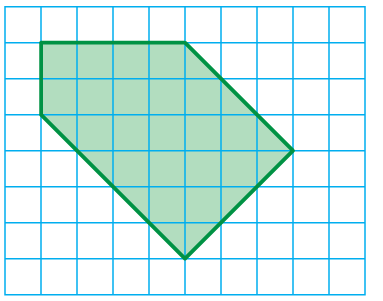
Solution :
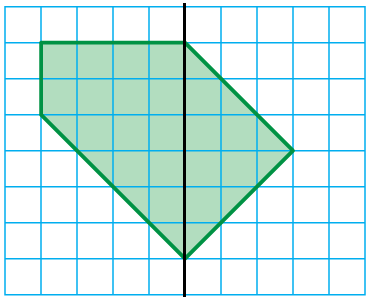
Area of the shpae in the coordinate plane
= area of triangle + area of trapezium
= (1/2) x 6 x 3 + (1/2) x 4 x (2 + 6)
= 3 x 3 + 2 x 8
= 9 + 16
= 25 square units.
Area of the shape given = 25 square units.
Problem 4 :
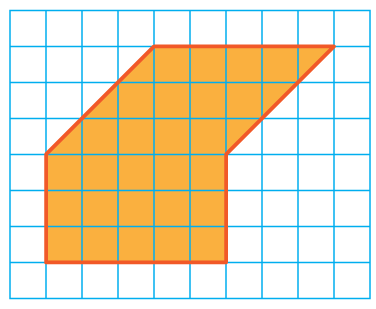
Solution :
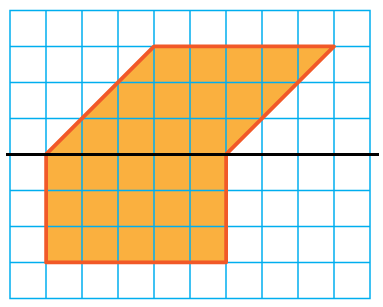
Area of the shape
= area of rectangle + area of parallelogram
length = 5, width = 3
height of parallelogram = 3, base = 5
Area of rectangle = length x width
Area of parallelogram = base x height
= 5 x 3 + 5 x 3
= 15 + 15
= 30 square units.
Area of the shape given = 30 square units
Problem 5 :
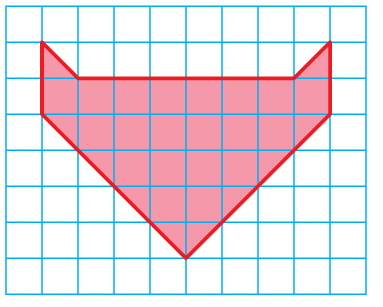
Solution :
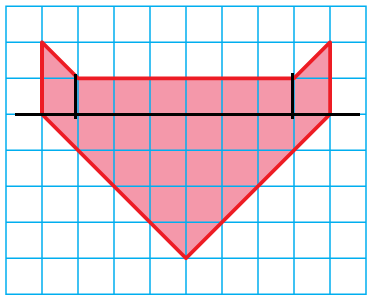
Area of shape
= 2 area of trapezium + area of rectangle + area of triangle
= 2 x (1/2) x (2 + 1) x 1 + 6 x 1 + (1/2) x 8 x 4
= 3 + 6 + 16
= 25 square units.
Area of the shape given = 25 square units
Problem 6 :
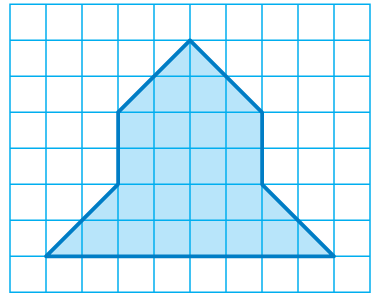
Solution :
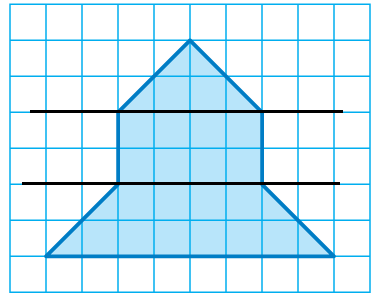
Area of shape = area of triangle + area of rectangle + area of trapezium
base = 4, height = 2
length = 4, width = 2
a = 8, b = 4, h = 2
= (1/2) x 4 x 2 + 4 x 2 + (1/2) x 2 (8 + 4)
= 4 + 8 + 12
= 24 square units.
Area of the shape given = 24 square units.
Problem 7 :
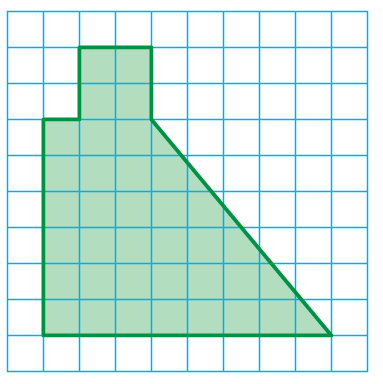
Solution :
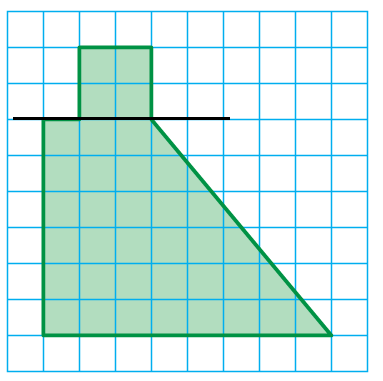
Area of shape given = aera of square + area of trapezium
= 2 x 2 + (1/2) x 6 x (8 + 3)
= 4 + 3 x 11
= 4 + 33
= 37 square units
So, the area of the shape given is 7 square units.
Subscribe to our ▶️ YouTube channel 🔴 for the latest videos, updates, and tips.
Kindly mail your feedback to v4formath@gmail.com
We always appreciate your feedback.
About Us | Contact Us | Privacy Policy
©All rights reserved. onlinemath4all.com

Recent Articles
-
Mastering the SAT Math
Feb 12, 26 07:16 AM
Mastering the SAT Math -
Digital SAT Math Problems and Solutions (Part - 1)
Feb 12, 26 06:31 AM
Digital SAT Math Problems and Solutions (Part - 1) -
Simplifying Square Roots Worksheet
Feb 10, 26 07:29 AM
Simplifying Square Roots Worksheet


